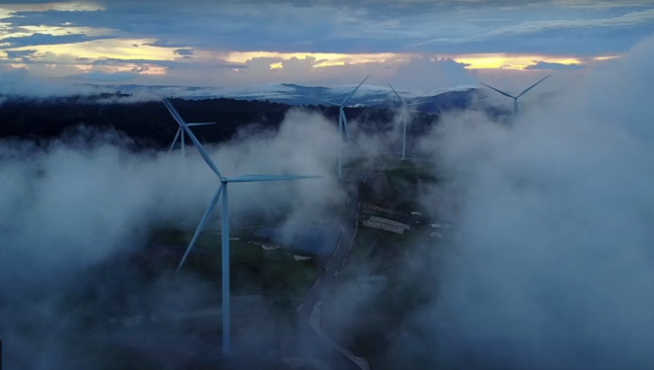
Rapid and widespread changes are needed across the world’s energy systems to tackle climate change and ensure sustainable development, experts have said.
In its annual World Energy Outlook, the International Energy Agency (IEA) warns that in a scenario based on countries’ stated intentions, targets and existing measures, the rises in greenhouse gases slow but do not peak before 2040.
It would leave hundreds of millions of people still without access to electricity, early deaths due to pollution would remain at today’s raised levels, and carbon emissions would lock in severe impacts of climate change, the IEA warned.
It would also see high output of shale gas and oil in the US, which has launched the process of pulling out of the global Paris Agreement to cut emissions to prevent temperature rises of more than 1.5C or 2C.
There would also be an increase in solar power, a flattening of oil demand and reduction in coal use, alongside countries driving change with plans to reach net zero emissions.
But the momentum behind clean energy would not be enough to offset the effects of an expanding global economy and growing population.
A scenario which delivers sharp emissions cuts and meets the goals of curbing rising temperatures would need rapid and widespread changes across all parts of the energy system, the IEA report said.
A key part of this is delivering energy efficiency improvements, from retrofitting existing buildings to save energy on heating and lighting to more efficient design and recycling of materials such as aluminium, steel and plastic.
Under this sustainable development scenario, electricity would overtake oil by 2040 as the leading source of energy, as electric vehicles take off, and most of the increase would come from wind and solar power.
And with so much recently-built coal power on the system globally, plants will need to be fitted with technology to capture and store carbon emissions or to burn biomass, re-purpose them to provide backup to other sources or retire them early.
Dr Fatih Birol, the IEA’s executive director, said: “What comes through with crystal clarity in this year’s World Energy Outlook is there is no single or simple solution to transforming global energy systems.
“Many technologies and fuels have a part to play across all sectors of the economy.
“For this to happen, we need strong leadership from policy makers, as governments hold the clearest responsibility to act and have the greatest scope to shape the future.”
And he urged: “The world urgently needs to put a laser-like focus on bringing down global emissions.
“This calls for a grand coalition encompassing governments, investors, companies and everyone else who is committed to tackling climate change.
“Our Sustainable Development Scenario is tailor-made to help guide the members of such a coalition in their efforts to address the massive climate challenge that faces us all.”
Recommended for you
